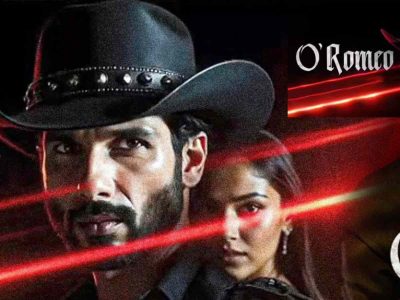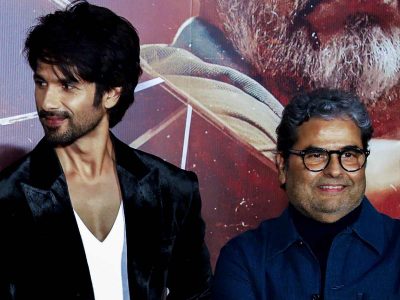Veteran actor Atul Tiwari fondly reflected on his career, highlighting the profound influence of filmmaker Vidhu Vinod Chopra, especially following the success of the iconic film Mission Kashmir (2000).
In an interview with Patriot, Tiwari praised Chopra’s exceptional kindness and generosity, describing him as a director who genuinely values his team.
“After Mission Kashmir achieved remarkable success, Vidhu Ji doubled the payment for the entire cast and crew,” Tiwari shared over the phone.
“He didn’t just focus on the lead actors but took the entire team, including their spouses, on a business-class trip to London for the film’s premiere. Such gestures are rare in this industry, and it truly shows his appreciation for everyone’s hard work,” Tiwari added.
Tiwari’s journey in the performing arts began when he moved to Delhi from Lucknow at the age of 20.
He recalls how his admission to the National School of Drama (NSD) in 1980 deepened his connection to the city. “NSD is the best institute for theatre in India. It has produced some of the finest actors, writers, and directors,” he stated.
“Getting into NSD is a challenge in itself, and once you are in, scholarships alleviate the financial burden, allowing you to focus on your craft. I learned a great deal during my three years there, including translating numerous plays,” he says.
Reflecting on his time at NSD, Tiwari reminisced about the camaraderie he shared with fellow students.
“After classes, we would often take a rickshaw to the Jama Masjid area for meals. We loved enjoying local delicacies like Nihari, Kulche, and Kebabs,” he recalled, a smile evident in his voice.
Discussing the vibrant theatre culture in Delhi, Tiwari noted the city’s abundance of venues concentrated around Mandi House. “Delhi has a plethora of theatres in close proximity, which is quite different from Mumbai, where theatres are sparse and spread out. This concentration creates a thriving environment for artists,” he explained.
However, he voiced concerns about the persistent challenges faced by theatre practitioners, particularly the lack of cultural funding. Tiwari observed that the government often places culture at the lowest priority.
“As an actor, one must be willing to take on all types of roles. I am open to whatever fits my body type and age,” he said.He also highlighted the significance of cultural festivals in showcasing talent, remarking, “These festivals are vital for artists to demonstrate their skills.”
Reflecting on the evolution of the film industry, Tiwari noted a significant shift in how projects are financed.
He says: “In the past, a lot of work was done through black money, but now it has largely transitioned to corporate funding. This cleaning up of the financial aspect is a significant change for the industry.”
Also Read: Every character is a hero in their own story: Saqib Saleem on redefining narratives
Tiwari also acknowledged the transformative impact of streaming platforms on cinema consumption.
“Thanks to OTT platforms, if I watch a movie in a cinema, my driver can enjoy the same film in the car three hours later. This accessibility is powerful,” he remarked.
Atul Tiwari’s illustrious career boasts collaborations with renowned South Indian superstar Kamal Haasan in four films: Marmayogi, Dasavathaaram, Vishwaroopam 1, and Vishwaroopam 2.





